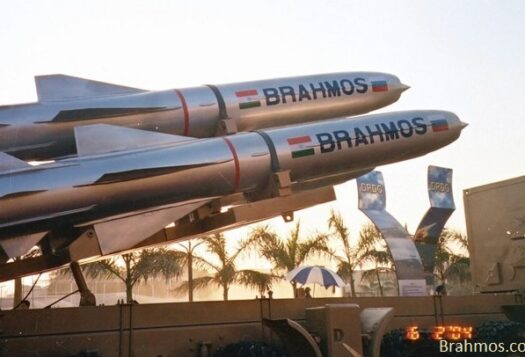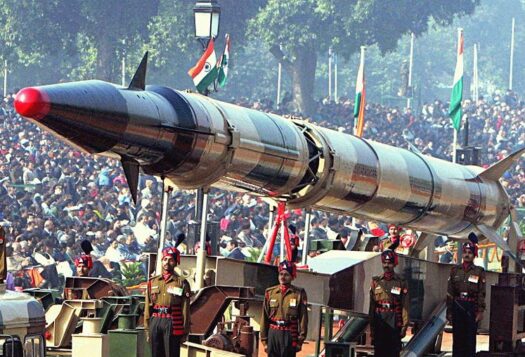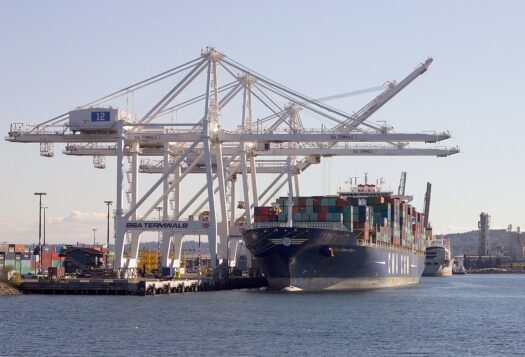
Excellency,
Since Pakistan tested its nuclear capability in 1998, there has been deep international concern regarding the security of its nuclear facilities. These worries are confusing and based upon incorrect assumptions. The international community cannot ignore that Pakistan immediately institutionalized its nuclear weapons program after testing its deterrent capability. It successfully built the National Command Authority (NCA) and Strategic Plans Division (SPD) to ensure the safety and security of all its deterrent forces and related facilities, under a centralized and robust command and control system. These responsible Pakistani institutions work very hard to ensure that nothing goes wrong when it comes to the safety, security, and reliability of Pakistan’s deterrent forces. I consider next week’s Nuclear Security Summit to be the ideal opportunity to discuss these issues.
Mr. President, domestically, Pakistan has commendably increased its fight against terrorism in all its forms and manifestations, harmonized its export control list in accordance with international standards, and constructed nuclear security mechanisms such as the Personnel Reliability Program. Internationally, Pakistan abides by the United Nations Security Council Resolution 1540 on proliferation, and adheres to the Convention on Nuclear Safety, the Convention on the Physical Protection of Nuclear Materials, and conventions on early notification and assistance. Pakistan has recently ratified the Convention on Physical Protection of Nuclear Materials, indicating its positive role in shaping a global nuclear order and its desire to get mainstreamed. Islamabad has established the Pakistan Nuclear Regulatory Authority that closely works with International Atomic Energy Agency (IAEA).
In taking part in the final Nuclear Security Summit, Pakistan wishes to underscore its resolve and commitment to playing a normative role towards international non-proliferation efforts. Pakistan is a responsible nuclear weapons state and we are glad that the international community—including the United States— acknowledges these institutionalized efforts.
Pakistan has been steadfast against signing the Fissile Material Cut-off Treaty (FMCT). This does not necessarily indicate, however, an increase in its deterrent forces as the world presumes. As scholars have observed, Pakistan practices “a moratorium on nuclear testing, has a modest number of deterrent forces, follows credible minimum deterrence, keeps nuclear weapons for defensive purposes only and accepts internationally verifiable, non-discriminatory, and criteria-based non-proliferation endeavors.” The international community largely misperceives Pakistan’s declaratory statement of full-spectrum deterrence, associating it with bigger numbers. Full-spectrum deterrence falls within the broader contours of minimum deterrence—that is, to deter all forms of aggression. Arguably, Pakistan is not shifting away from minimum deterrence.
The international community needs to understand that the broader security concerns of Pakistan are determined by what is referred to as an “extra-regional dimension.” That is, what happens between the United States and Russia affects China, China affects India, and since Pakistan’s nuclear posture is India-specific, India greatly affects Pakistan’s nuclear strategy. That said, India’s consistent force modernization, plans for multiple independently targetable re-entry vehicles (MIRVs), the acquisition of an assured second strike capability in the form of nuclear submarines, the development of inter-continental ballistic missiles (ICBM), its aspiration to be a regional power, its Cold Start Doctrine (CSD), deployment of missile defense systems (BMD), and an increase in fissile materials with special wavier by the international community demonstrate India’s aspiration for a grand nuclear strategy in the 21st century. India continues to keep its nuclear posture in draft form that remains flexible and open for modification, which certainly has implications on the strategic and deterrence stability of South Asia.
Having said this, we believe that nuclear deterrence brings stability to South Asia. Pakistan does not want a nuclear arms race or parity—it only wants balance so that deterrence does not get eroded. I urge the international community to consider the increasing conventional asymmetry in South Asia that goes in India’s favor, and in turn puts strategic pressure on Pakistan. Therefore, Pakistan would like a regional commitment to the creation of strategic restraint regime (SRR) that we have already proposed for South Asia. The creation of SRR could ensure deterrence stability and avoid the danger of war in South Asia.
Mr. President, Pakistan reaffirms that we will continue to play a positive role toward global efforts to improve nuclear security and non-proliferation measures. However, our position is determined by the global nuclear order, which is discriminatory and unjust and needs to be normalized.
Yours sincerely,
Muhammad Nawaz Sharif
***********
As heads of state gather in Washington, D.C. for the final Nuclear Security Summit next week, what would South Asia’s leaders say to President Barack Obama? In this series, two SAV contributors speculate what Indian Prime Minister Narendra Modi and Pakistani Prime Minister Nawaz Sharif might convey to the U.S. president on their country’s nuclear security accomplishments, areas for improvement, and an issue they would like on the agenda at the Summit. Two other contributors sketch out how President Obama might respond. Read the entire series here.
***


